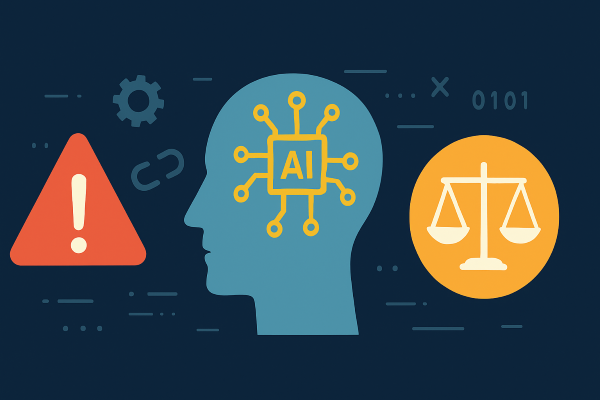
AI and the Gig Economy: What It Means for Small Business Owners
The gig economy—where freelancers and independent contractors provide short-term services—has reshaped how businesses operate, offering flexibility and cost savings. Simultaneously, artificial intelligence (AI) is transforming industries with its ability to automate tasks, analyze data, and enhance decision-making.
For small business owners, the convergence of AI and the gig economy presents opportunities and challenges. This article explores what this intersection means, how it impacts operations, and key considerations for leveraging these trends effectively.
The Gig Economy and Small Businesses
The gig economy has become a lifeline for small businesses, providing access to specialized talent without the overhead of full-time employees. Platforms like Upwork, Fiverr, and TaskRabbit connect owners with freelancers offering skills in graphic design, marketing, coding, and more.
This model allows businesses to scale operations up or down based on demand, hire experts for niche projects, and manage tight budgets. For instance, a small café might hire a freelance social media manager to boost its online presence without committing to a salaried role.
However, managing gig workers comes with challenges. Coordinating multiple freelancers, ensuring quality, and maintaining consistency can strain small business owners who often wear many hats. This is where AI steps in, streamlining processes and amplifying the benefits of the gig economy.
How AI Enhances the Gig Economy for Small Businesses
AI is revolutionizing how small businesses engage with gig workers and optimize their operations. Here’s how:
Streamlined Hiring and Matching
AI-powered platforms use algorithms to match businesses with freelancers based on skills, experience, and project needs. Tools like Toptal or Freelancer.com analyze profiles and past performance to recommend top candidates, saving owners hours of sifting through applications. AI can also predict project timelines and budgets, ensuring better alignment between expectations and deliverables.
Task Automation
Many routine tasks outsourced to gig workers—data entry, customer support, or content scheduling—can now be partially or fully automated with AI. For example, chatbots handle basic customer inquiries, while tools like Zapier automate workflows between apps. This reduces the need for certain freelance roles, allowing businesses to allocate budgets to high-value tasks like strategy or creative work.
Performance Monitoring and Quality Control
AI tools track freelancer performance by analyzing metrics like task completion rates or client feedback. Platforms like Upwork integrate AI to flag inconsistencies or delays, helping owners maintain quality without micromanaging. For instance, a small e-commerce store hiring a freelance writer can use AI grammar checkers like Grammarly to ensure polished content.
Data-Driven Decision Making
AI analyzes data from gig projects to provide insights into what’s working. For example, a business hiring freelancers for digital ads can use AI platforms like HubSpot to track campaign performance, identifying which strategies deliver the best ROI. This helps owners refine their approach and allocate gig budgets more effectively.
Cost Optimization
By combining AI automation with gig labor, small businesses reduce costs. AI identifies inefficiencies—say, overpaying for repetitive tasks that could be automated—while the gig model eliminates expenses like benefits or office space. Together, they create a lean, agile operation.
Opportunities for Small Business Owners
The synergy of AI and the gig economy offers small businesses several advantages:
Access to Global Talent
AI-powered platforms connect owners with freelancers worldwide, enabling them to tap into diverse skill sets at competitive rates. A small retailer in Ohio can hire a top-tier web developer from India, with AI ensuring a seamless match.
Scalability
Need a one-off logo or a six-month marketing campaign? AI and gig platforms let businesses scale projects without long-term commitments, which is ideal for fluctuating workloads.
Competitive Edge
Small businesses can compete with larger firms by using AI to optimize gig work. For example, AI-driven analytics help a local bakery hire freelance marketers who match the sophistication of big-brand campaigns.
Challenges to Navigate
Despite the benefits, small business owners must address potential pitfalls:
Over-Reliance on Automation
While AI streamlines tasks, over-automation can depersonalize customer interactions or stifle creativity. Owners should balance AI with human gig workers for tasks requiring empathy or innovation.
Data Privacy and Security
Sharing sensitive business data with freelancers or AI platforms raises risks. Owners must vet platforms for compliance with regulations like GDPR and ensure freelancers sign NDAs.
Managing Fragmented Teams
Coordinating multiple gig workers across time zones can be chaotic. AI tools like Slack’s workflow automation or Asana’s project tracking help, but owners still need clear communication protocols.
Skill Gaps in AI Adoption
Not all owners are tech-savvy. Learning to use AI tools or interpret their outputs requires time and training, which can feel daunting amidst daily operations.
What Small Business Owners Need to Know
To harness AI and the gig economy effectively, consider these steps:
Choose Reliable Platforms
Select AI-powered gig platforms with strong reputations and user-friendly interfaces. Research reviews and test free trials to find the best fit.
Integrate AI Gradually
Start with one area, like automating customer emails or hiring a freelancer for a single project. Scale up as you gain confidence.
Invest in Training
Spend time learning basic AI tools or hire a gig consultant to set up systems. Many platforms offer tutorials or affordable onboarding.
Prioritize Communication
Use AI collaboration tools like Trello or Zoom to align gig workers with your vision. Regular check-ins prevent misunderstandings.
Monitor Costs
Track spending on freelancers and AI subscriptions to ensure they deliver value. Tools like QuickBooks integrate AI to simplify budgeting.
The Future of AI and the Gig Economy
Looking ahead, AI will deepen its integration with the gig economy. Predictive analytics could forecast which freelancers are best for future projects, while AI-driven “smart contracts” on blockchain platforms may automate payments and agreements. These advancements promise even greater efficiency and access to talent for small businesses.

 How AI Can Help Your Business
How AI Can Help Your Business